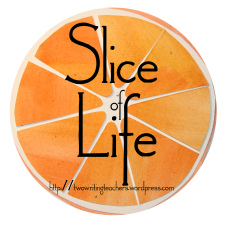Having a sense of who we are as readers and writers is an important aspect of motivation and engagement. Classroom activities to foster an awareness of reading and writing identities:
- Write and talk about previous reading or writing experiences with others.
- Write and talk about reading/writing habits, likes, and dislikes.
- Write and talk with others about reasons for reading or writing.
The National Writing Project, along with the New York Times Learning Network and Figment, celebrated the why of writing by collecting essays from people from all walks of life, interviewing authors, collecting student essays, spreading the word through Facebook and Twitter—and more—as one way to celebrate the National Day on Writing on October 20, 2019. Below is an example from Evan Grant, creative technologist and founder of seeper, For more examples, open the hyperlink and visit https://www.nwp.org/cs/public/print/resource/3663 for myriad responses.
Why I Write: Evan Grant’s Words Seep into His Technology
Evan Grant describes the different ways he writes and the cathartic release he feels during the process. “It is a cathartic release that helps structure my thoughts and direction in life,” he writes.
Asking students to write about “Why I Write” and “Why I Read” is important. It brings an identity to the surface level and it’s inspiring to share the responses of classmates. Of course, it is important to model with your own response.
I write to remember my past and all the stories I have to tell. I write to leave a little piece of my life story behind, sending my thoughts and feeling out into the world like small pryers to be received. I write to make my thinking visible to others and so that I can think about my words and have opportunities to revise them. When you share your writing with others, your ideas, feelings, stories are out there, traveling to places you cannot go. Best of all, writing helps me lose myself in the pages of a story or the depths of a poem and helps me find myself when I write to learn, to understand, to give me some authority in a topic. For me, that topic has been mentor texts.
I read to grow my imagination and knowledge. I read because it reduces stress, particularly useful during this time of “social distancing.” If I read, hours can pass by where I am in “the reading zone” and not thinking about all that is troubling me about this time of the global pandemic. Reading is almost always a better source of entertainment than watching television, even if you are watching a movie. Reading makes us smarter, and since I always need to learn more about almost everything, I can read and build a reservoir of knowledge that helps me be a better conversationalist, a better writer, and a better mentor.
Try it out. Write some thoughts about “Why I Write” and “Why I Read.” To start a new school year, model for your students and give them time to write about it. Share as posters with artwork and/or photos in your classroom or the hallway. Perhaps the entire school can participate before the fall parent conference sessions or the first Open House. Post student responses on your canvas page or in a newsletter that goes home to parents. It’s all part of helping students think about themselves as readers and as writes at a conscious level – of being able to declare, “I am a reader,” “I am a writer.”
 I am participating in #SOL20. Thanks to twowritingteachers team for providing the space for us to write, share, and grow.
I am participating in #SOL20. Thanks to twowritingteachers team for providing the space for us to write, share, and grow.